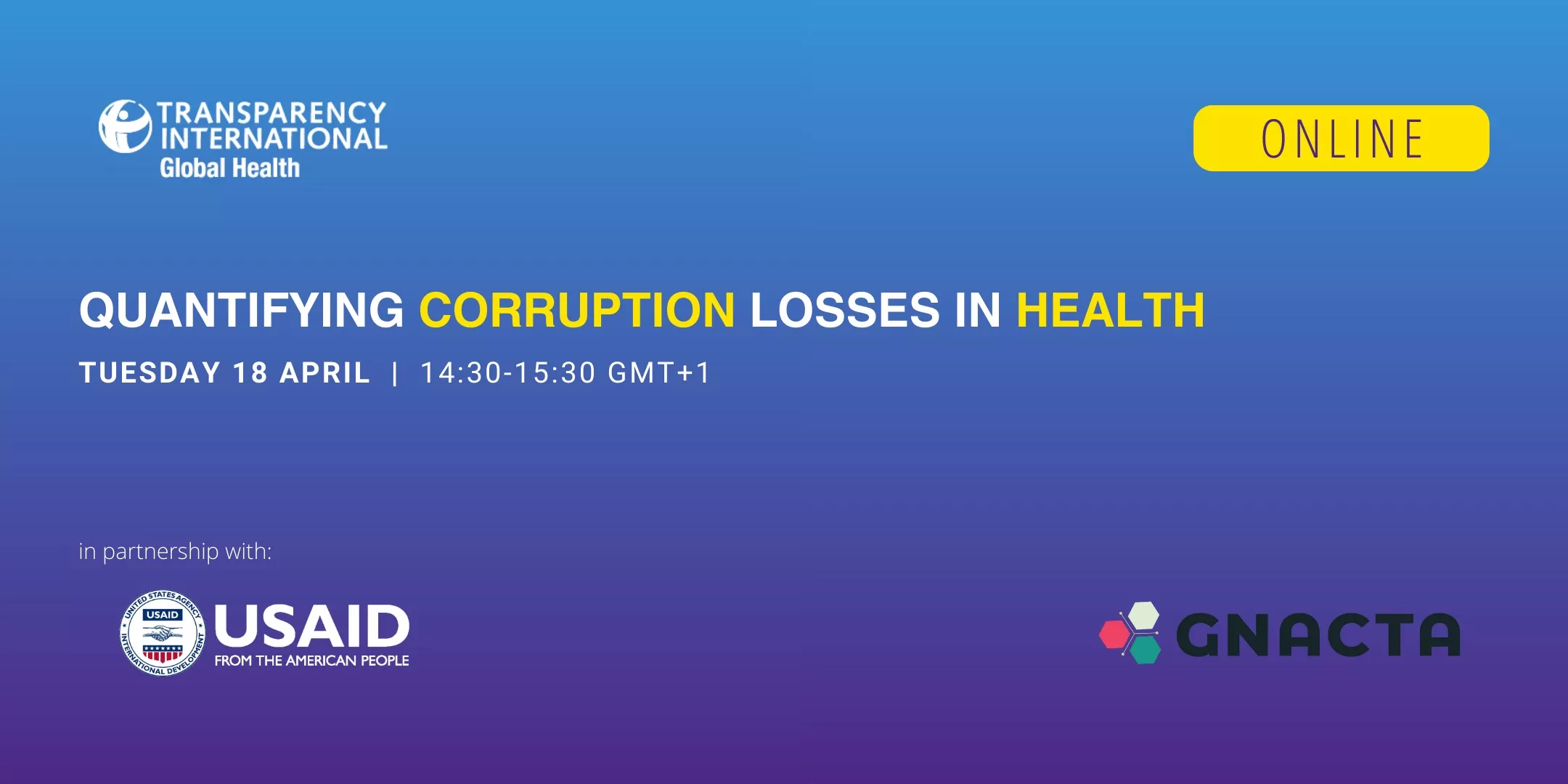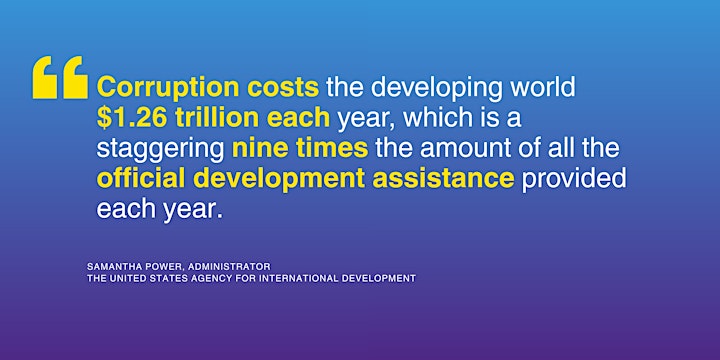
The economic impact of corruption on the health sector is estimated at 500 billion dollars every year. More than enough to help achieve Sustainable Development Goal 3 which strives to ensure good health and well-being for all
Paying bribes to access essential services, mismanagement of public funds and the lack of competition on public contracts are just some of the ways corruption happens within health systems. Yet, the cost of this corruption is often unknown. The absence of information and open data in this area makes it difficult for government departments and anti-corruption practitioners to make the business case for tackling corruption.
Join us online on Tuesday 18 April (14:30-15:30 GMT+1) as we explore how to best quantify corruption losses within the health sector. This webinar in partnership with USAID and the Global Network for Anti-Corruption, Transparency and Accountability in Health (GNACTA) will hear from research teams working to pinpoint the cost of corruption within systems, their methodologies and findings.
Our expert panel will discuss:
- where specific vulnerabilities within health systems occur
- how measurement of corruption within systems can be a driver for change
- ways to increase transparency and ensure communities can access vital information on health funds
Speakers:
- Prashant Yadav is a senior fellow at the Center for Global Development and Affiliate Professor of Technology and Operations Management at INSEAD. Yadav’s work focuses on improving healthcare supply chains and designing better supply chains for products with social benefits. (Moderator)
- Mihály Fazekas is the scientific director of the Government Transparency Institute, while also serving as an assistant professor at the Central European University, Department of Public Policy, with a focus on using Big Data methods to understand the quality of government globally.
More speakers will be announced in the coming weeks
